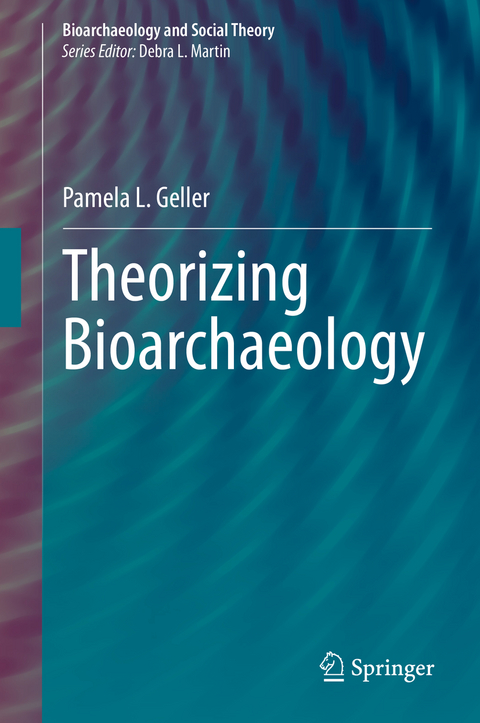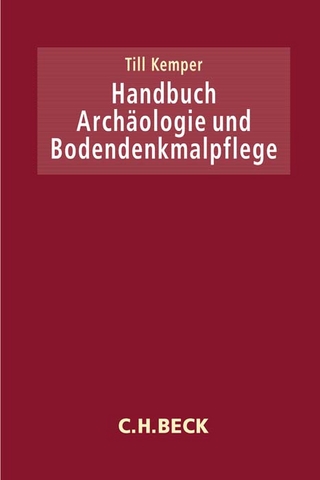
Theorizing Bioarchaeology
Springer International Publishing (Verlag)
978-3-030-70702-6 (ISBN)
Bioarchaeology has relied on Darwinian perspectives and biocultural models to communicate information about the lives of past peoples. This book demonstrates how further theoretical expansion-a thoughtful engagement with critical social theorizing-can contribute insightful and more ethical outcomes. To do so, it focuses on social theoretical concepts of pertinence to bioarchaeological studies: habitus, the normal, intersectionality, necropolitics, and bioethos. These concepts can deepen study of plasticity, disease, gender, violence, and race and ethnicity, as well as advance the field's decolonization efforts.
This book also works to overcome the challenges presented by dense social theorizing, which has paid little attention to real bodies. It historicizes, explains, and adapts concepts, as well as discusses archaeological, historic, and contemporary case studies from around the world.
Theorizing Bioarchaeology is intended for individuals who may have initially dismissed social theorizing as postmodern but now acknowledge this characterization as oversimplified. It is for readers who foster curiosity about bioarchaeology's contradictions and common sense. The ideas contained in these pages may also be of use to students who know that it is naive at best and myopic at worst to presume data derived from bodies speak for themselves.
Pamela L. Geller is an associate professor of anthropology at the University of Miami. Her research, interests include bioarchaeology and biohistory;theorizing about gender, sexuality, race, and nation;biopolitics and necropolitics; socio-politics of the past; andbioethics. More recently she has become obsessed with plastics as 21st-century material culture in need of urgent archaeological attention. Her publications includeThe Bioarchaeology of Social-Sexual Lives (2017, Springer Press), co-edited volume Feminist Anthropology (2006, Penn Press), numerous journal articles, and op-eds.She is also editor of the Routledge book series The Archaeology of Gender and Sexuality. Over the years, Gellerhas conducted fieldwork in Israel, Hawai'i, Belize, Honduras, Peru, and Haiti.
Chapter 1. Bioarchaeology as a Young and Emerging Discipline.- Chapter 2. Evolutionary Theory and Cultural Ecology/Human Behavioral Ecology Theory.- Chapter 3. Theories on Society and Inequality.- Chapter 4. Gender and Identity Theory.- Chapter 5. Violence Theory.- Chapter 6. Colonialism Theory.- Chapter 7. Practice Theory and Human Experience.- Chapter 8. Future Directions.
| Erscheinungsdatum | 02.07.2021 |
|---|---|
| Reihe/Serie | Bioarchaeology and Social Theory |
| Zusatzinfo | XIII, 150 p. 7 illus., 1 illus. in color. |
| Verlagsort | Cham |
| Sprache | englisch |
| Maße | 155 x 235 mm |
| Gewicht | 417 g |
| Themenwelt | Geisteswissenschaften ► Archäologie |
| Geisteswissenschaften ► Geschichte | |
| Sozialwissenschaften ► Ethnologie | |
| Sozialwissenschaften ► Soziologie | |
| Schlagworte | Evolutionary Theory and Cultural Ecology • Evolution of complex behaviors • Relationship between humans and the environment • Scientific study of humankind • Social Bioarchaeology Theories • Society and Inequality in Bioarchaeology |
| ISBN-10 | 3-030-70702-4 / 3030707024 |
| ISBN-13 | 978-3-030-70702-6 / 9783030707026 |
| Zustand | Neuware |
| Haben Sie eine Frage zum Produkt? |
aus dem Bereich


